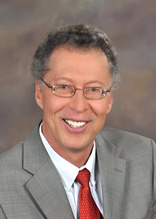What are non-meandered water bodies in South Dakota? In Alice in Wonderland the mock turtle says, “Well, I never heard it before; but it sounds uncommon nonsense.” Non-meandered is a surveying and legal term for what are called temporary water bodies. The term in basic concept means waters that are ‘shallow or likely in time to dry up.’ And, of course time is a relative concept for sure. In 2004 the South Dakota Supreme Court in the Parks case declared that such water bodies were public water bodies even though the land underneath, the lake beds, could remain privately held property. Importantly, Parks held that all waters including non-meandered waters are public property. Yes, the law can be schizophrenic. Current law pits land rights against water rights and creates a legal no-mans-land.
I was not involved in the Parks case, and on reviewing the decision I was not convinced the parties in the case presented the best arguments or even undertook the best legal strategy. I did nevertheless use this case as an illustrative case when I taught a law class a while back. The case is an example of how complicated even natural resources law can be when the two legal concepts meet. We have under the Parks decision schizophrenic property claims: one granting public property rights to the water and one granting private property rights to the underlying and surrounding land. The landowners in Parks received no remedy from the Court which deferred the real problem to state government.
Modern medicine has had good success in treating those diagnosed with schizophrenia. Such success is not the case concerning the legal schizophrenia I describe in this article. In Parks the Supreme Court said that unresolved issues of management of these public water bodies should be taken care of by state government. The Court pretty much directed state government to do something about it. That’s a tall request in a short world. The state Game, Fish and Parks three times proposed legislation to the South Dakota legislature in an attempt to cure this legal schizophrenia. All efforts presented to the legislature have been to no avail. One should not expect the inmates in bedlam, that is state legislators, to recognize there might be a problem. I may have maligned the wrong party by calling the law (as an institution) schizophrenic. It strikes me that the legislature needs therapy.
In 2014 private landowners, seeing no relief in sight went back to court. I guess the wise principal of once burned twice shy is asking too much of those who exercise too much faith. Several landowners filed a new lawsuit claiming these public water bodies are misused by outdoor enthusiasts. More particularly landowners in the lawsuit claimed that outdoor enthusiasts were ‘firing guns, blaring music, operating loud machinery, getting drunk, littering and so forth.’ To me this sounds like the bar scene in Aberdeen a few years ago. Yet even so, I fully understand the frustration of the complaining landowners. Management of these newly declared public waters is necessary. Landowners optimism in seeking relief in the courts was however what we should call blind faith. A full and complete remedy did not occur. In this second court go around, the Supreme Court stated, “. . . until the Legislature acts, neither the public nor the Landowners have a superior right to use the waters and ice overlying the Landowners’ private property.” Hunting and fishing is integral to the economy. Game, Fish and Parks in a recent report stated that outdoor activities have a significant effect on the state “generating nearly $1.9 billion dollars in economic activity” in 2016. So, alas, legislators not wishing to deport themselves as thoughtful leaders have dutifully ignored this legal problem. Welcome to Alice in Wonderland.
David Ganje of Ganje Law Offices practices in the area of natural resources, environmental and commercial law.





